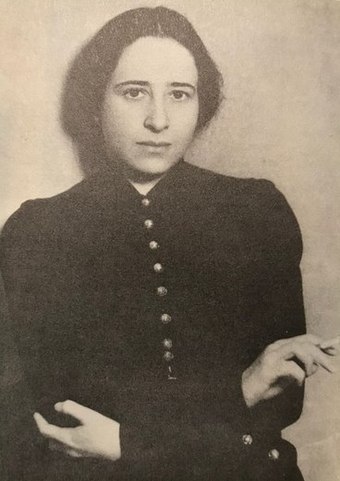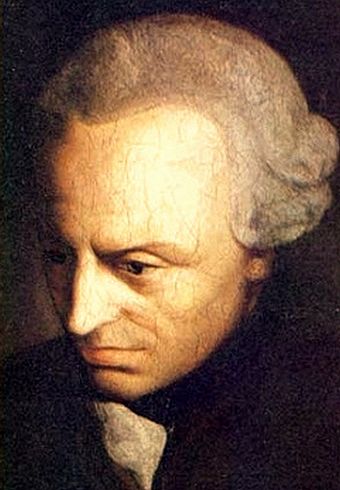205. New Year’s Day 2021: A Celebration of Real Beginnings?
Many people make resolutions on New Year’s Day. It is a day of beginnings and endings and is often accompanied by faith and hope in the new.
But can there ever really be a new beginning?
Well, resolutions are often understood as acts of will. But if our will is not free – if all our so-called free choices are just illusions – then every resolution would be necessitated by innumerable events in the past. Likewise, the maintaining or breaking of a resolution would also be necessitated and would have nothing to do with choice or personal responsibility. If you stop smoking you were necessitated to do so; if you keep smoking you were necessitated to do so as well.
In philosophy, determinism is the view that all events are the necessary effects of previous events. There are no possibilities in the world; only necessities. When applying this to systems, one can say that a system is deterministic if there is only one way the system could evolve given its initial conditions and the laws governing it. The following argument can be given for this view:
Premise 1: Every event in the universe has a cause.
Premise 2: Human actions are events in the universe.
Therefore, all human actions are caused, i.e., necessitated or determined to move the way they do.
If this argument is sound, that is, if the premises are true and the conclusion follows validly from the premises, then there is no free will.
But what if we have free will? If we do, then there are real beginnings taking place whenever a genuine choice from among real alternatives occurs. To be sure, we are always influenced by many factors. But if we are freely choosing then we can’t be completely determined by them. Hannah Arendt elaborates on action and real beginnings:
“To act, in its most general sense, means to take an initiative, to begin (as the Greek word archein, “to begin,” “to lead,” and eventually “to rule,” indicates), to set something in motion (which is the original meaning of the Latin agere)….This beginning is not the same as the beginning of the world; it is not the beginning of something but of somebody, who is a beginner himself. With the creation of man, the principle of beginning came into the world itself, which, of course, is only another way of saying that the principle of freedom was created when man was created but not before….The fact that man is capable of action means that the unexpected can be expected from him, that he is able to perform what is infinitely improbable. And this again is only possible because each man is unique, so that with each birth something uniquely new comes into the world.” (The Human Condition, chapter 5).
Hannah Arendt, 1933
Such originating action would be, to borrow a phrase Plato employed in his dialogues Phaedrusand Laws, “self-moving” and would be quite different from the other forms of motion with which we are familiar. According to Immanuel Kant, it would also be the inner value of the world. In his Lectures on Ethics from the early 1780s he wrote:
“Freedom is, on the one hand, that faculty which gives unlimited usefulness to all the other faculties. It is the highest order of life, which serves as the foundation of all perfections and is their necessary condition. All animals have the faculty of using their powers according to will. But this will is not free. It is necessitated through the incitement of stimuli, and the actions of animals involve a bruta necessitas [animal necessity]. If the will of all beings were so bound to sensuous impulse, the world would possess no value. The inherent value of the world, the summum bonum [highest good], is freedom in accordance with a will which is not necessitated to action. Freedom is thus the inner value of the world.”
Immanuel Kant
Freedom of the will is that which differentiates our species from all other species and makes us capable of moral judgment and responsibility. And freedom is the condition for the possibility of other things being good: intelligence without free will couldn’t be morally evaluated as good, altruistic action without a freely chosen motive wouldn’t be good, dedication with freedom wouldn’t be admirable, and so on. Since our free will is that which allows things to be good in the first place it is intrinsically worthy and is the proper object of our respect.
But are we free? Well, in his Foundations for the Metaphysics of Morals (see the third section entitled “Freedom Must be Presupposed as the Property of the Will of all Rational Beings”) Kant claims we are required to postulate free will in order to make sense of our moral agency and responsibility. We can build on this insight and offer the following argument for the existence of free will:
Premise 1: If we are morally responsible then we have free will: without free will the whole notion of choosing and being responsible for a choice would be nonsense.
Premise 2: We are indeed morally responsible as the practical aspects of our lives show: our personal relations, legal system, and political realities are infused with concepts of choice, shame, regret, guilt, accountability, violations, responsibility, punishment, and so on.
Therefore, we are free.
I give other reasons against determinism and in defense of free will here. But I am not trying to settle this controversial topic. I just want to point out that if you, too, think free will exists then you might agree with me that New Year’s Day is an appropriate day to celebrate the reality, wonder, and hope of our value-giving freedom and the true beginnings it inaugurates.
Happy New Year!
Dwight Goodyear

